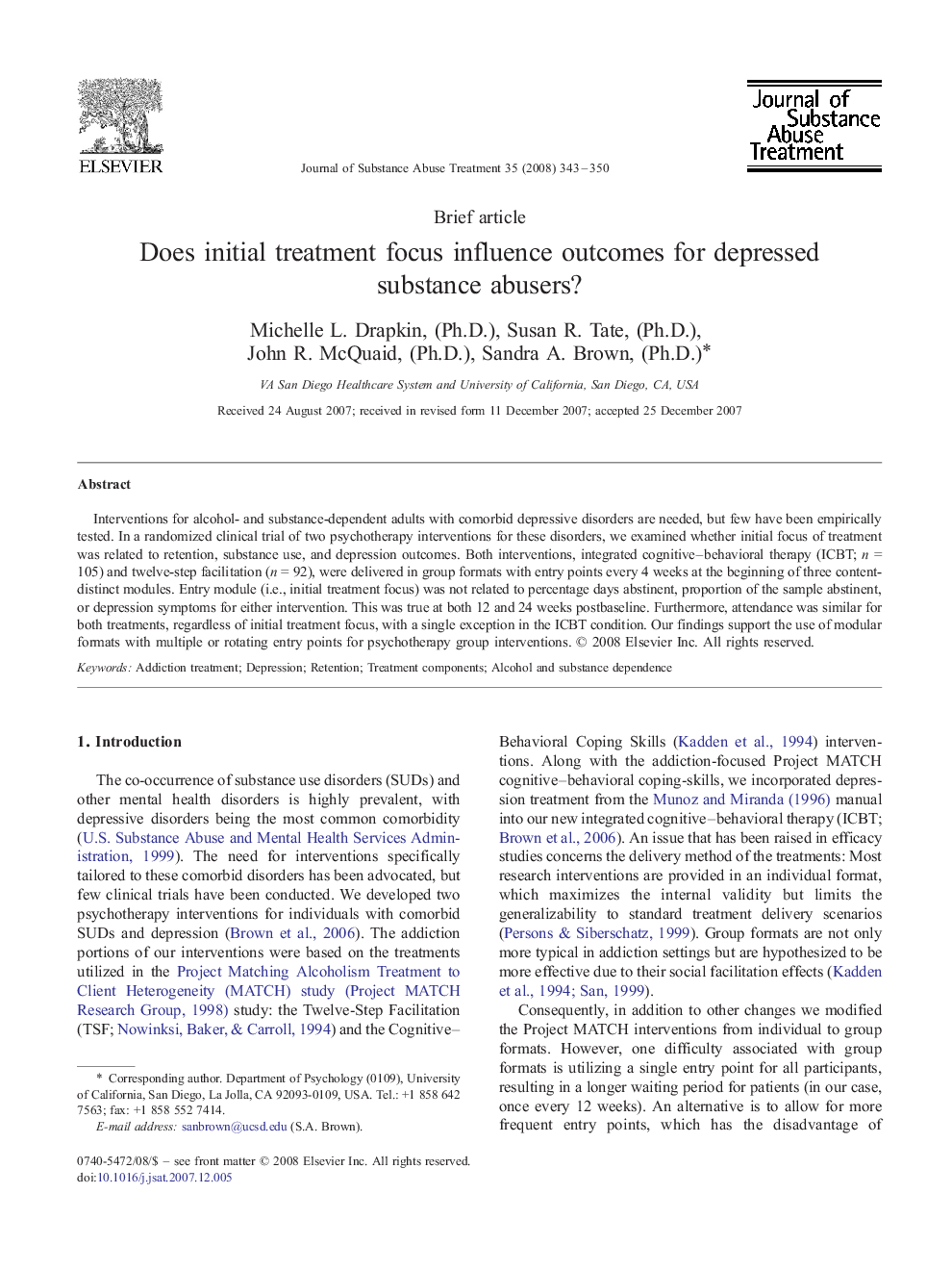| Article ID | Journal | Published Year | Pages | File Type |
|---|---|---|---|---|
| 330021 | Journal of Substance Abuse Treatment | 2008 | 8 Pages |
Interventions for alcohol- and substance-dependent adults with comorbid depressive disorders are needed, but few have been empirically tested. In a randomized clinical trial of two psychotherapy interventions for these disorders, we examined whether initial focus of treatment was related to retention, substance use, and depression outcomes. Both interventions, integrated cognitive–behavioral therapy (ICBT; n = 105) and twelve-step facilitation (n = 92), were delivered in group formats with entry points every 4 weeks at the beginning of three content-distinct modules. Entry module (i.e., initial treatment focus) was not related to percentage days abstinent, proportion of the sample abstinent, or depression symptoms for either intervention. This was true at both 12 and 24 weeks postbaseline. Furthermore, attendance was similar for both treatments, regardless of initial treatment focus, with a single exception in the ICBT condition. Our findings support the use of modular formats with multiple or rotating entry points for psychotherapy group interventions.
